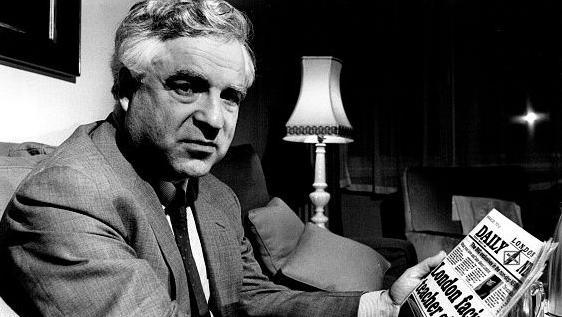US travel and guidebook writer Arthur Frommer dies at 95

- Published
US writer Arthur Frommer, known for the guidebook Europe on 5 Dollars a Day and other titles on budget travel, has died aged 95.
Pauline Frommer, his daughter, confirmed his death in a statement on his website.
The writer, who began his journalism while on military deployments abroad, passed away at home surrounded by his loved ones.
“Throughout his remarkable life, Arthur Frommer democratised travel, showing average Americans how anyone can afford to travel widely and better understand the world,” Pauline wrote in her statement.
“I am honoured to carry on his work of sharing the world with you, which I proudly do with his team of extraordinary and dedicated travel journalists around the world. We will all miss him greatly," she added.
Frommer was the founder of Frommer's guidebooks - a series of travel books that included planning and travel tips to destinations around the globe.
The series was based on Europe on 5 Dollars a Day - one of his first publications, which came out in 1957 and sold millions of copies.
The book detailed how average Americans could afford to take trips that many thought were only accessible to the wealthy.
“This is a book for American tourists who a) own no oil wells in Texas, b) are unrelated to the Aga Khan, c) have never struck it rich in Las Vegas and who still want to enjoy a wonderful European vacation," he wrote in the original guidebook.
Frommer was drafted during the Korean War. He was sent to Europe and served in Germany because of his language skills. While deployed, he wrote what would be his first travel guidebook for his fellow service members, The GI's Guide to Travelling in Europe.
As well as a writer, Frommer was a TV and radio host whose work helped shape others' approach to travel.
In one essay, Frommer wrote that travel "broadens our lives".
"Travel has taught me that despite all the exotic differences in dress and language, of political and religious beliefs, that all the world’s people are essentially alike," he wrote. "We all have the same urges and concerns, we all yearn for the same goals."